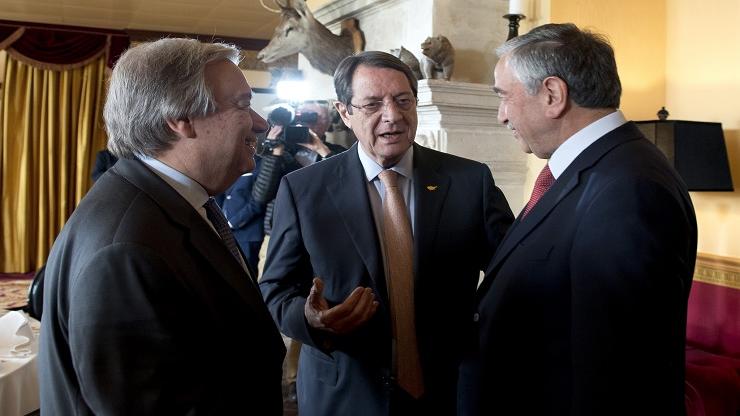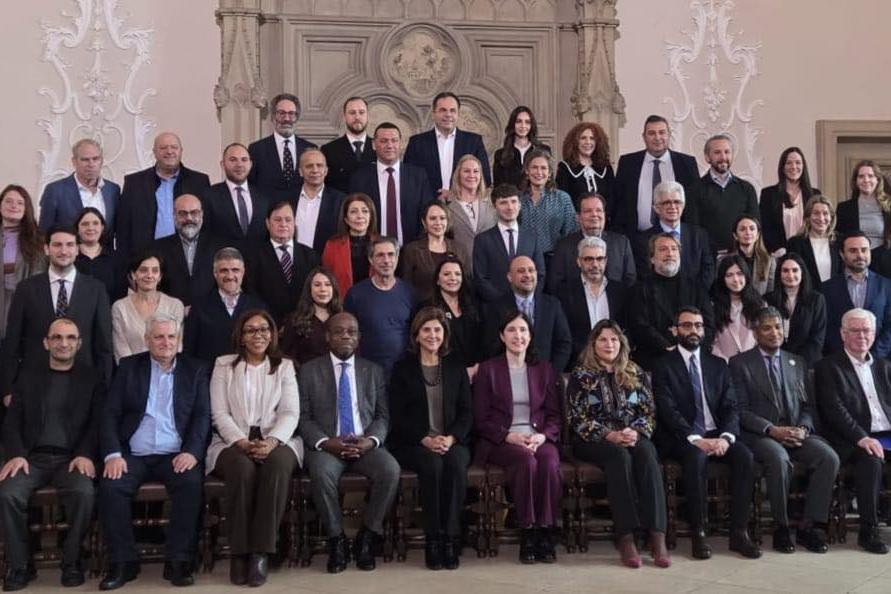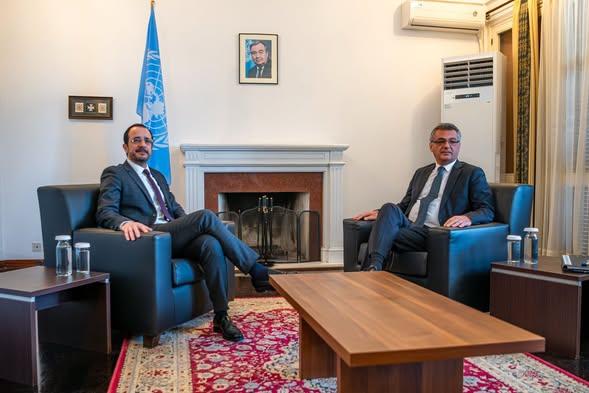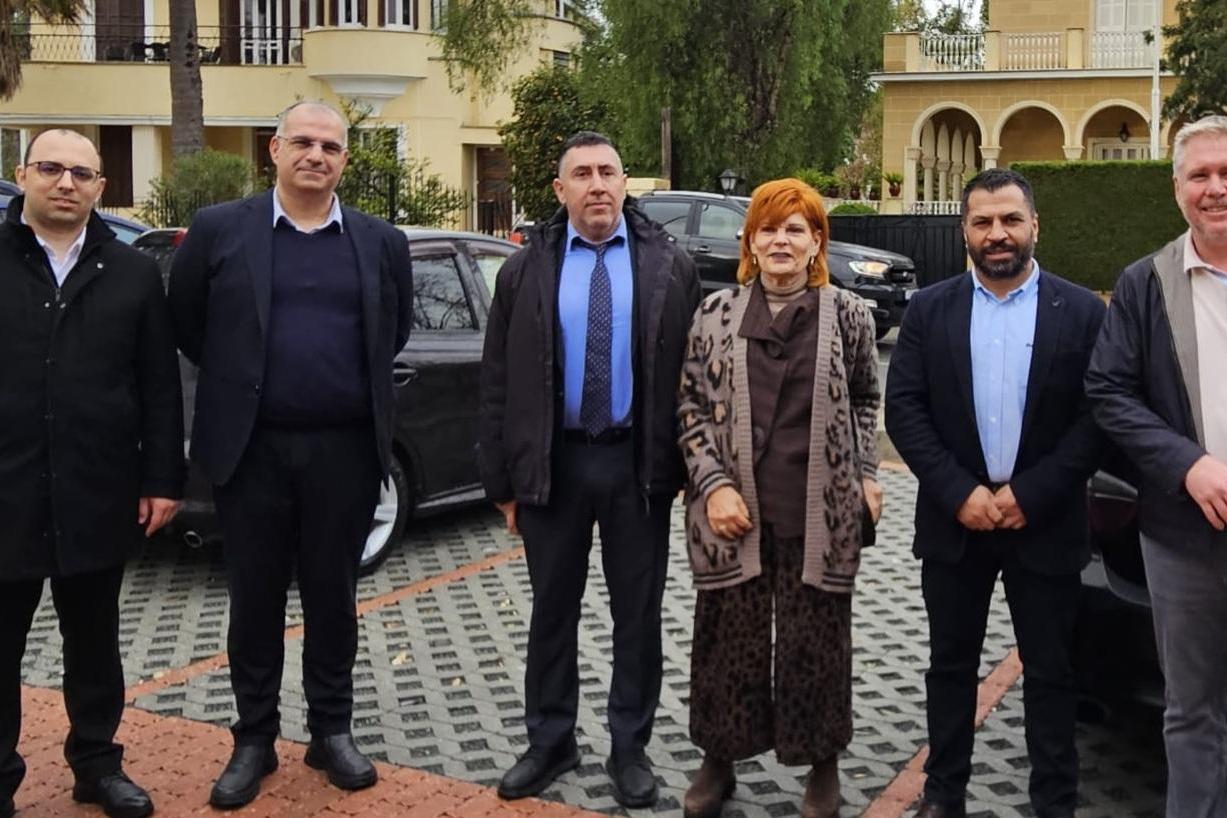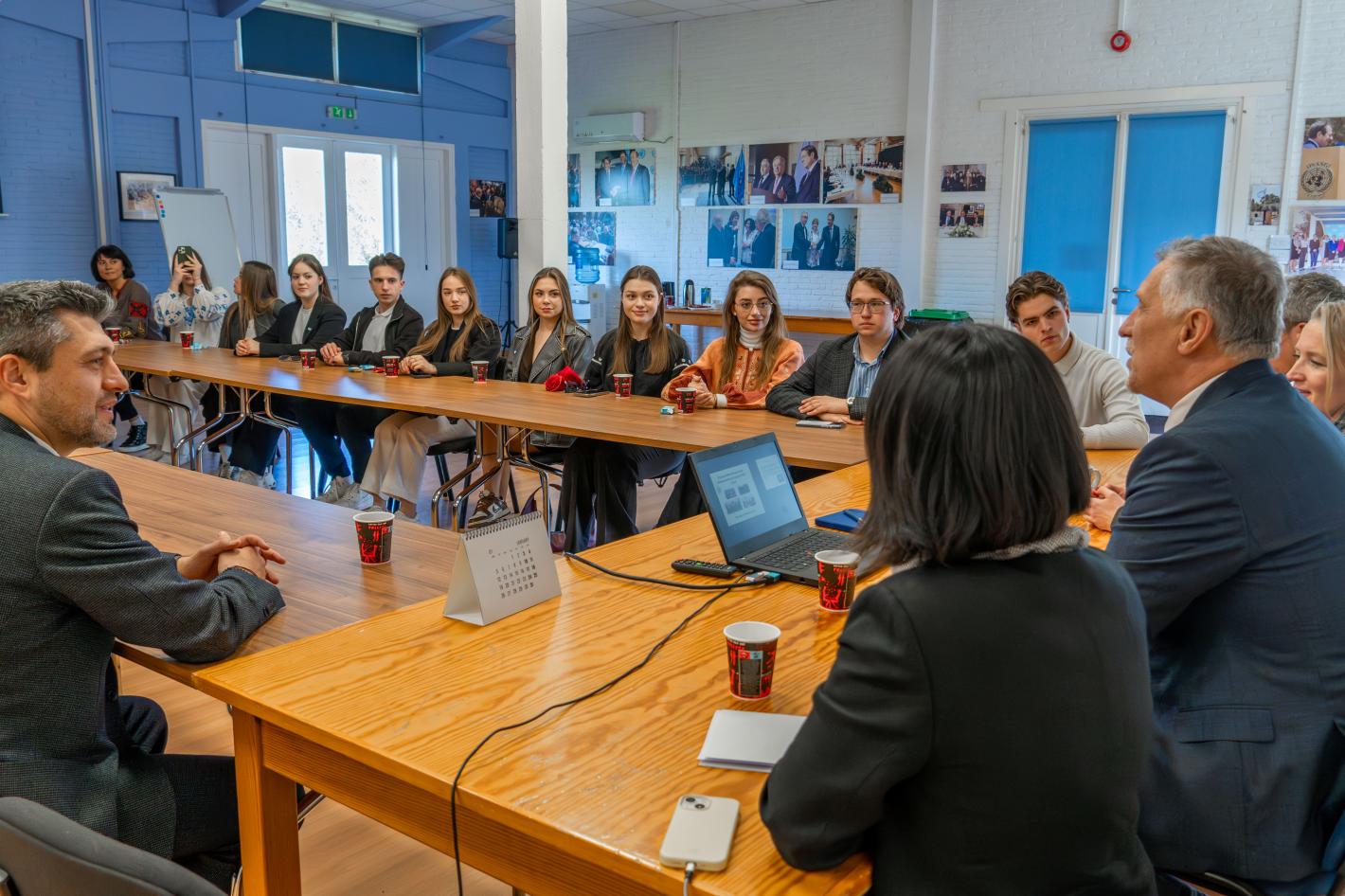There was much anticipation in the run up to the resumed Conference on Cyprus in Crans-Montana, Switzerland, at the end of June 2017. The view among many observers of the long-running “Cyprus problem” was that this latest phase of negotiations was the closest the parties -- the Greek Cypriots and Turkish Cypriots -- had ever come to reaching a settlement. These renewed hopes turned to disappointment after a week of intensive discussions, however. In the early morning of 7 July, Secretary-General António Guterres, who had come to the Swiss resort town hoping to give the talks a decisive push, announced to reporters that, despite considerable efforts, the Conference was closing without an agreement.
So, what now for the Cyprus peace process? In Crans-Montana, the Secretary-General also said the fact the Conference had closed “doesn’t mean that other initiatives cannot be developed in order to address the Cyprus problem.”
“The United Nations role is the role of a facilitator, and we will always be at the disposal of the parties willing to come to an agreement, if that would be the case,” he went on.
The resumption of negotiations in the future was one of the questions the Secretary-General’s Special Adviser on Cyprus, Espen Barth Eide, discussed with the Security Council behind closed doors yesterday, 18 July 2017. Speaking after addressing the Council, Mr Eide lamented the fact that the collapse of the talks came despite all the “pieces of the puzzle”, or deal, that had been put on the negotiating table.
We reproduce below Mr Eide’s sobering account of the Crans-Montana talks and his take on next steps.
“I briefed the Council today in quite some detail about the way to the Crans-Montana Conference on Cyprus and also what transpired during the conference, and I first would like to say that the Council as well as Elizabeth [Spehar, head of the UN Peacekeeping Force in Cyprus] and myself and the Secretary-General all very much think that this is not the time for engaging in the “blame game”. There is more than enough of that going around. It seems that everybody is of the view that everybody but themselves did everything wrong and they were the only ones doing it right.
“But I think we have to admit that there was a collective failure of stitching together a deal in Crans-Montana despite of the fact that towards the end of the conference we saw more and more of the pieces of the puzzle actually coming on the table. That came late, but it came, but we were not able to stitch it together to a total deal, because we had this perennial problem of the chicken and egg: What comes first, what comes second? And all sides in many ways continued to reserve their final gives until they saw the cards of the other side.
“The Secretary-General and the rest of us were trying very actively throughout the ten days of the conference and particularly in his presence on 30 June and then again on 6 July to overcome this by saying that in our view there is a package available where six separate, important and crucial issues are all settled and only when they are all settled we can say that we have a deal. We thought that would be possible, but realized that it wasn’t. And the realization came at the end of the very long and rather difficult dinner that we had on the night of 6 July moving into the morning of 7 July. The mood at that dinner led the Secretary-General to conclude that there was no, at least no imminent purpose to continue, there was no grounds for continuing the conference, so he decided to close the Conference on Cyprus, which had begun on 12 January in Geneva and which then ended in the early hours of 7 July in Crans Montana.
“Now, the UN of course will always be available, if the leaders jointly decide to continue this effort, but we are in their hands. One of the most important principles of the Cyprus talks is that they are leader-led and they can be nothing else. It has been my guiding light throughout this process, that we have to remember, that we are there to facilitate, we engage with the leaders, we engage with the guarantors, we engage with the European Union, which I want to thank for its stellar support to many, many aspects of this process, the international financial institutions and other key players, but we cannot do it for them. It has to be owned by the leaders and it has to be supported by the guarantors.
“You’ve seen the Secretary-General in his report and in other statements say that the leaders now need to go through a process of reflection. We hope they will not jump to conclusions. We hope they reflect seriously on what can be done now after the fact that the Conference on Cyprus failed and if they so do, we will be available. But right now, we don’t see there being a process. And given the number of developments domestically and around the island, I think it’s also quite urgent that this reflection is done in the spirit of understanding and compromise rather than exacerbating the differences that clearly exist. Otherwise I think it will be even more difficult to restart any process, be it the process that we so far have known or another kind of process. This is what we shared with the Council.
“I think we can safely say that every single member of the Council deplored the fact that the conference failed. They urged for restraint, they underlined the importance of a reflection period, a cooling off period and they very much underline this fundamental idea that it of course is up to the Cypriot communities and their elected leaders to make up their mind what to do next. We will follow that.
“In the meantime, what we will do is to do a very substantive record of everything that has happened, because it’s clear, and it was an element of almost every intervention by the Council, that this process took Cyprus closer than ever before to a settlement; there was more substance, more understanding, more agreements – and even more were found in Crans-Montana – and even if we are currently not in an ongoing process, it would be sad if that would be lost, not recorded. So we will make sure that we properly record all of this. I will make sure that we work with the Secretary-General now to present the Report of the Good Offices, which encapsulates all this, and we’ll also do our internal work, and then I think it’s over to Cyprus to see what the leaders and of course the neighbouring countries, the guarantors, will do next.”
Source: UN Department of Political Affairs, Politically Speaking
